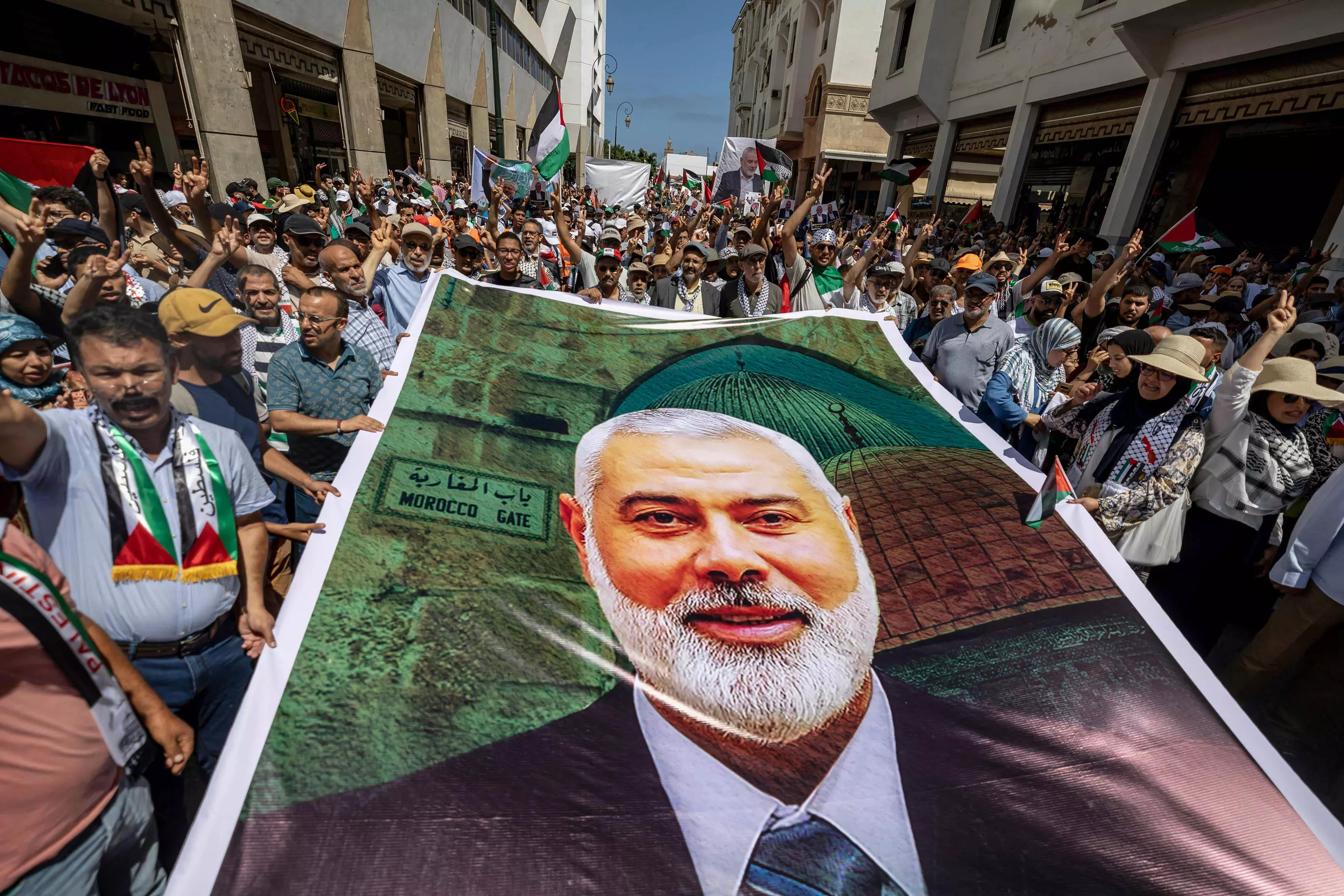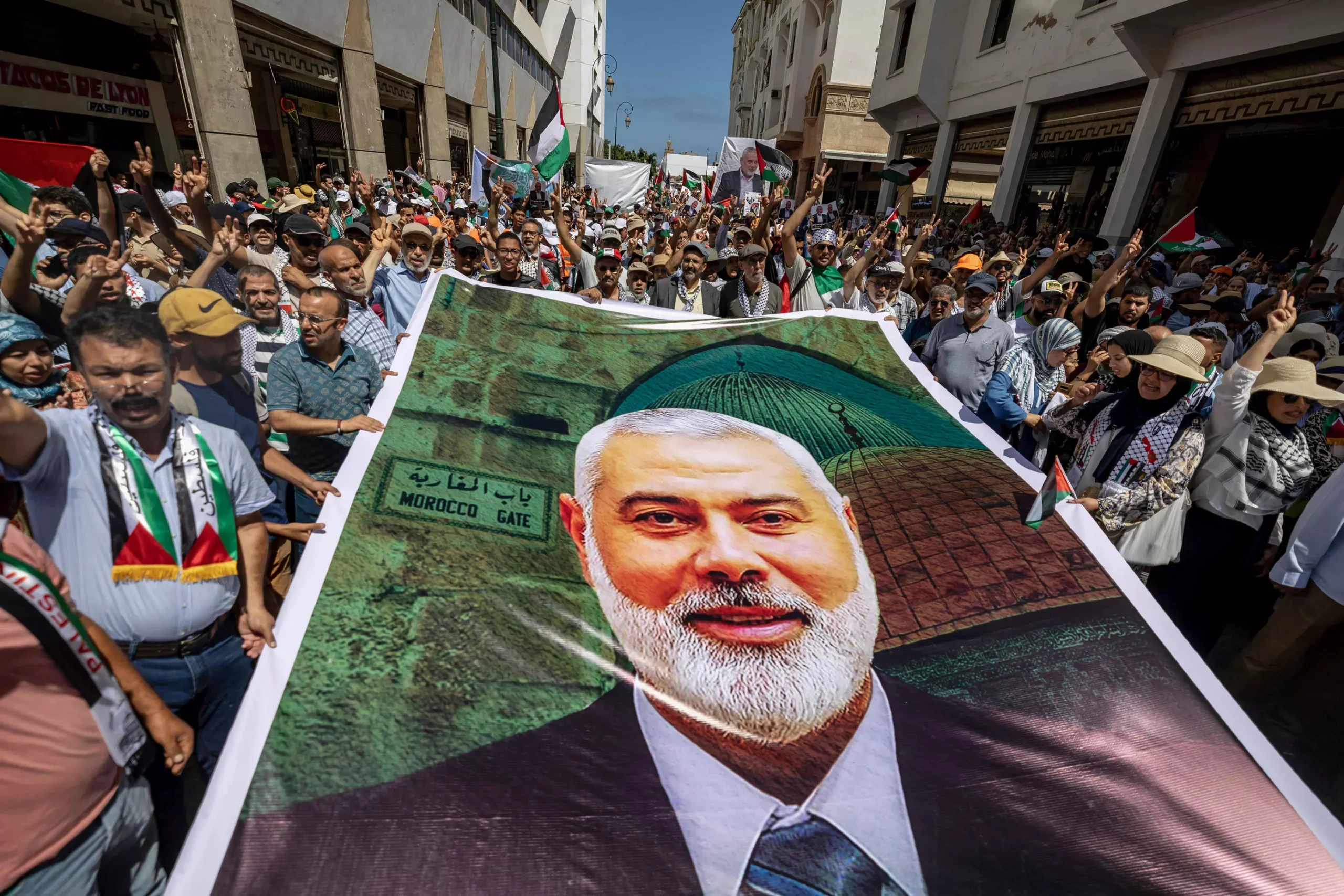
The recent assassination of the political chief of Hamas, Ismail Haniyeh, ostensibly at a guest house in Tehran has once again reignited debates among scholars of public international law, humanitarian law and a host of other interconnected legal disciplines around the legality of targeted assassinations under international law.
His death was widely described by the international media as a “targeted killing”. It also seems to fit the definition provided by the International Committee of the Red Cross (ICRC), i.e., “the intentional and premeditated use of lethal force by a state or organised armed group against a specific individual outside their physical custody”.
However, international law for very obvious reasons lacks a universally recognised definition of a “targeted killing”, with the convergence of diverse legal frameworks further complicating the issue.
Historical and Legal Context: Political assassinations has long been considered prohibited in warfare, explicitly forbidden by the 1907 Hague Convention, which established fundamental laws, rules and doctrines for wartime conduct. The 1998 Rome Statute outlines war crimes prosecutable by the International Criminal Court. During peacetime, assassinating political leaders of foreign nations is illegal under various treaties and conventions, such as the Convention for the Prevention and Punishment for Terrorism adopted by the 24 members of the League of Nations on November 16, 1937, whilst it was still in existence. There are also other covenants under the UN Charter such as the 1973 New York Convention on the Prevention and Punishment of Crimes against Internationally Protected Persons, including diplomatic agents.
Extrajudicial executions violate the inalienable human right to life, as outlined in Article 6 of the International Covenant on Civil and Political Rights (ICCPR). International human rights law generally applies at all times, both in peacetime and during armed conflicts, to protect individuals from targeted killings. Under very exceptional circumstances even if domestically sanctioned by any legal framework of a sovereign government such as the use of drones for neutralising semi-state actors that played itself out repeatedly in Afghanistan for well over two decades any and every such targeted killing must adhere to strict criterion, ensuring it is necessary, proportionate, and executed through due process that is subjected to rigorous oversight even though the legality of any such action would have no basis in international law.
Organisations like Human Rights Watch, Amnesty International, and the United Nations Office of the Special Rapporteur on Extrajudicial, Summary, or Arbitrary Executions consistently and vociferously assert that targeted killings, in any context, breach international human rights law. The overarching principle remains the protection of the right to life, and any deviation from this principle must, therefore, necessitate a compelling legal justification, adherence to due process, and accountability for any violations even if it is sanctioned under any domestic legal framework that would obviously contradict the legal architecture of the sovereign domain on which such an action plays itself out.
State Practices and Legal Precedents: Nils Melzer’s 2008 book, Targeted Killing in International Law, notes that Israel was likely the first country in the world to acknowledge a policy of targeted killing in 2000. It was seen as a “policy of targeted frustration of terrorism”. However, Israel is not the only country to employ this practice. Many other countries, including the most voluble proponents of the rule of law and constitutionalism, have been in the forefront of also carrying out similar attacks, when there real or perceived national interest demanded. Moreover, it is universally observed that since September 11, 2001, targeted killing has gained broader acceptance globally.
In 2002, Israeli and Palestinian human rights groups challenged this practice in Israel’s courts. The Israeli Supreme Court took five years to decide, ultimately concluding that it could not categorically determine the legality of every targeted killing under customary international law, underscoring the complexity of the issue. A significant challenge in assessing the legality of these assassinations is determining the applicable legal framework. While domestic law, laws of war, and international humanitarian law (IHL) are among them, IHL is only applicable in times of conflict, allowing certain violent acts during hostilities. However, even under IHL, the legality of a killing can be questioned if the victim was not directly participating in hostilities at the time.
State Responsibility and International Law: Targeted killings are often controversial because such assassinations, especially when committed in another nation, are perceived as a violation of a country’s sovereignty. According to Article 2(4) of the UN Charter, states are forbidden from using force in the territory of other states. Under the law of inter-state force, such actions conducted by one state in the territory of another do not violate the second state’s sovereignty if the second state consents to such use of force or if the victim state has the right to use force against the territorial state in self-defence under Article 51 of the UN Charter.
The United Nations’ Human Rights Council has investigated whether targeted killings are consistent with international law. Three separate UN special rapporteurs between 2010 and 2013 have found that, in general, targeted killings violated international human rights law. UN special rapporteurs on extrajudicial, summary, or arbitrary executions concluded that targeted killings generally violate the right to life under international law. In 2013, Amnesty International and Human Rights Watch also produced reports on targeted killings, arriving at similar conclusions.
In a case concerning the right to life, the European Court of Human Rights had to decide whether the targeted killing of three suspected terrorists by British special police violated the right to life. The Court found that the consequent neutralisation was due to a United Kingdom government policy of instructing its police forces to shoot to kill. Consequently, the Court found, for the first time, the state responsible for a violation of the right to life in Article 2 of the European Convention on Human Rights. The Court held that the act of ordering the killings was attributable to the United Kingdom and that the state had a legal obligation to ensure the right to life enshrined in Article Two of the European Convention on Human Rights. Furthermore, the UK government’s justification, that it believed the three persons were terrorists about to carry out an attack, was not found to be adequate.
When a state undertakes a targeted killing outside the strict limitations imposed by international law, it ends up invariably violating the right to life as it obviously does not want to or even can adequately investigate its own handiwork. In any case it would want to distance itself from any such action even if taken in what it perceives as legitimate self-defence and even though it may well be a violation of another country’s sovereignty in terms of laws and territory.
As international jurisprudence evolves, the scrutiny and legal standards governing targeted killings will also continue to deepen and develop, to balance state security interests with the protection of fundamental human rights, ensuring accountability and upholding the rule of law.
